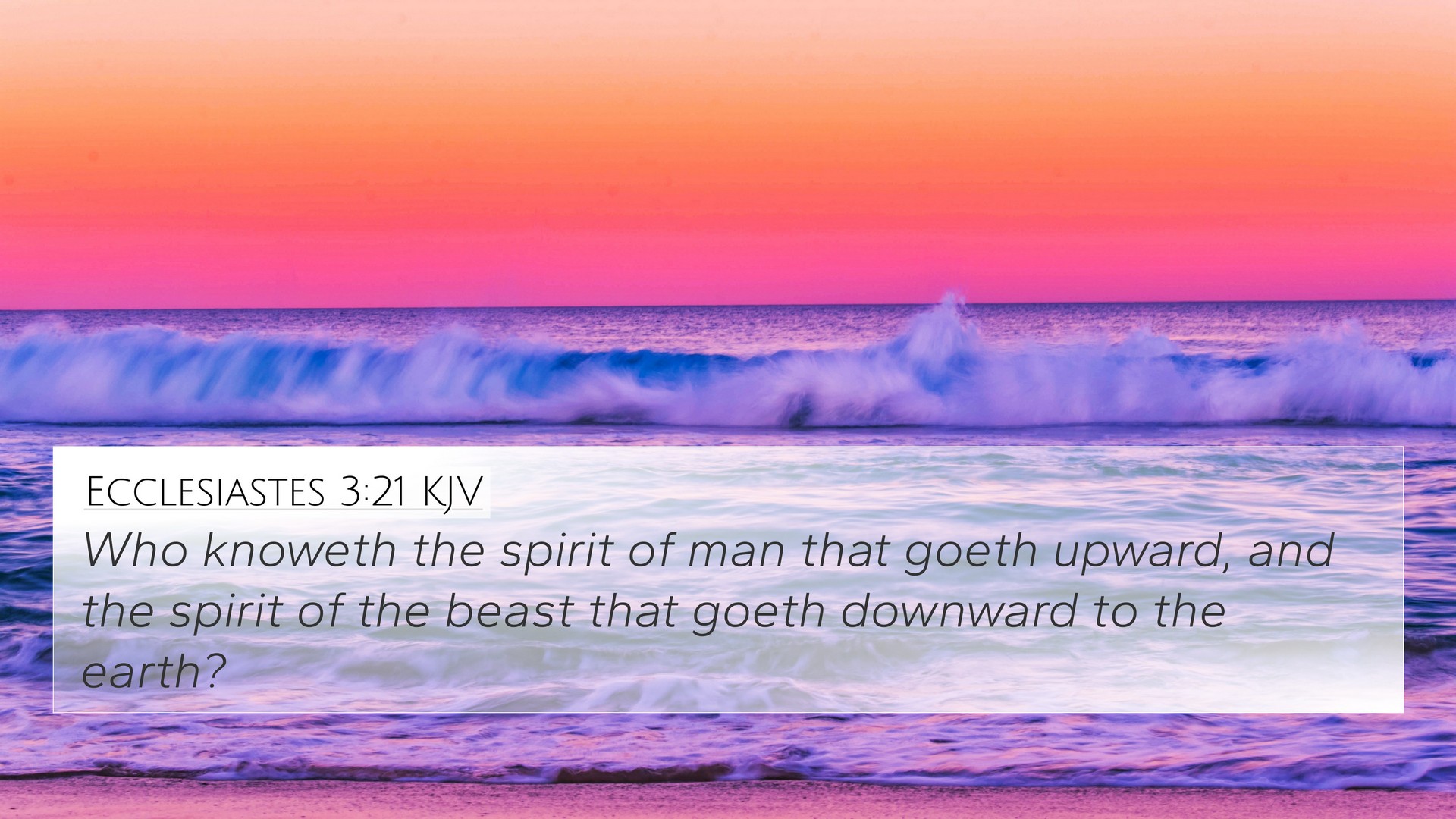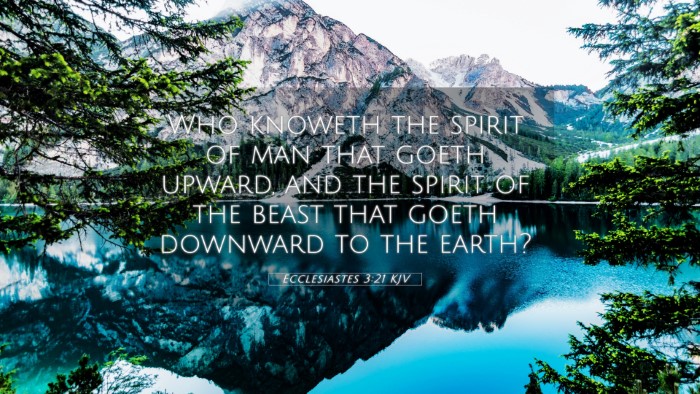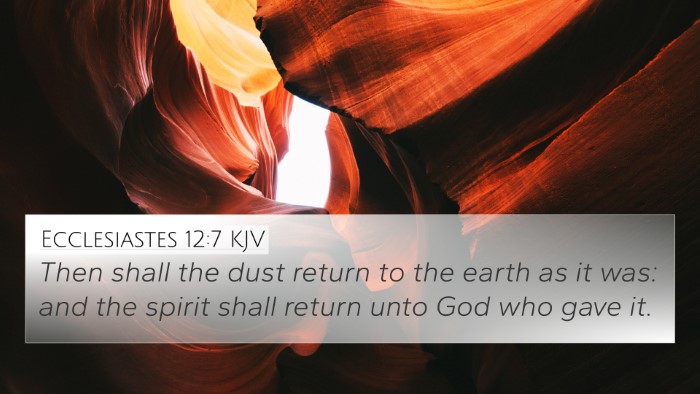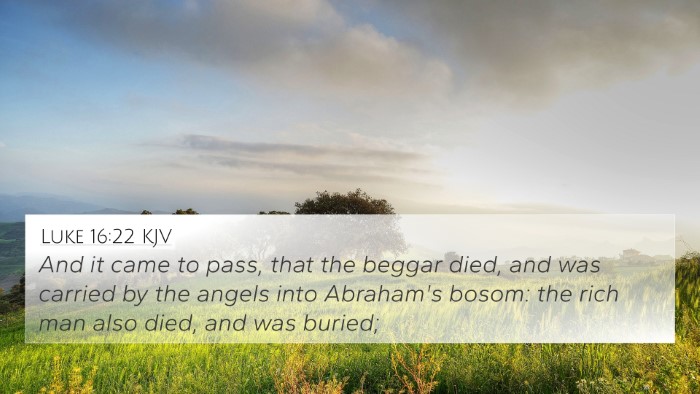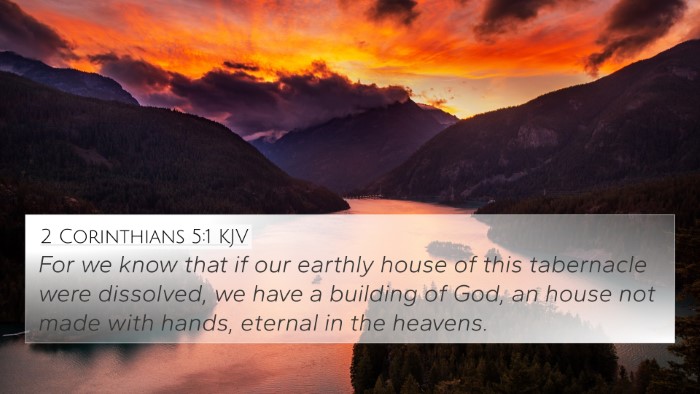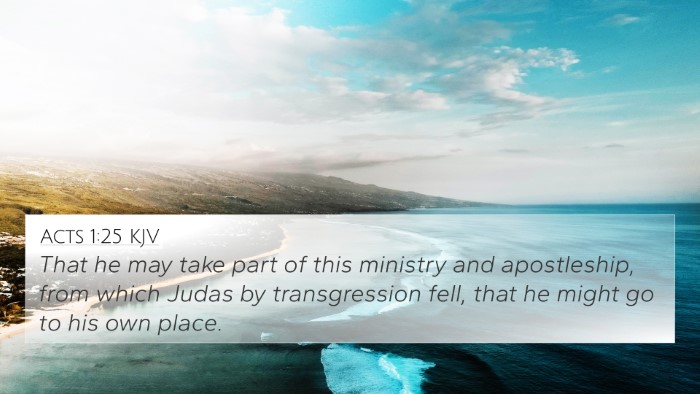Ecclesiastes 3:21 - Understanding the Meaning
Verse: "Who knows the spirit of man that goes upward, and the spirit of the beast that goes downward to the earth?" (Ecclesiastes 3:21, ESV)
Summary of Meaning
This verse reflects on the nature of mankind in relation to creation and the divine. Solomon ponders the distinction between human and animal existence, emphasizing the mystery surrounding the spirit, which relates to life after death and the soul’s ultimate journey.
Insights from Public Domain Commentaries
-
Matthew Henry:
Henry emphasizes the profound question posed by Solomon—whether human beings possess insight into their own spiritual essence compared to animals. He interprets this as an acknowledgment of our limited understanding of life and the afterlife, pointing to the need for divine revelation to grasp the true nature of existence.
-
Albert Barnes:
Barnes discusses the implications of the spirit's journey, alluding to the belief that while both man and beast have spirits, Solomon suggests a different fate for each. He draws attention to the ambiguity surrounding the human spirit and how it transcends earthly existence, opening up theological discussions about life after death.
-
Adam Clarke:
Clarke elaborates on the existential dilemmas posed in this verse. He points out that though the spirit may return to its origin—God for humanity—animals are bound to the earth. This serves as a reminder of humanity's unique relationship with the Creator and the responsibilities that come with it.
Cross-References to Ecclesiastes 3:21
- Genesis 2:7 - Discusses the creation of man and the breath of life.
- Ecclesiastes 12:7 - Explains the return of the spirit to God upon death.
- Job 12:10 - Acknowledges that in God's hand is the life of every creature and the breath of all mankind.
- Psalm 104:29-30 - Speaks about God taking away life and sending forth the Spirit to renew the earth.
- Acts 7:59 - Illustrates Stephen committing his spirit to the Lord during martyrdom.
- Romans 8:19-23 - Talks about the sons of God and the longing of creation for redemption.
- 1 Corinthians 15:39 - Contrasts different forms of life, highlighting the unique creation of humanity.
Thematic Connections
The themes presented in Ecclesiastes 3:21 connect richly with other Biblical passages, illustrating an ongoing dialogue between the creation, the human experience, and divine intention.
- Human vs. Animal Spirits: The distinction invites a comparative analysis of Genesis, where the creation account lays foundational views for human dignity and purpose.
- Divine Origin of Life: Ecclesiastes emphasizes returning to God, which resonates with the concepts introduced in John 1:3, where all things were made through Him.
- Life After Death: Drawing parallels with John 14:2-3, where Jesus promises a place for believers, further develops the understanding of the spirit’s upward journey.
Conclusion
In Ecclesiastes 3:21, Solomon invites readers to contemplate the fate of the spirit, which ties into broader Biblical themes regarding creation, mortality, and the essence of life from both Old and New Testament perspectives. Through a comparative Bible verse analysis, we garner insights into not only the existential queries raised but also how they resonate within the fabric of scripture, encouraging an enriched study of the Bible’s interconnectedness.
Tools for Further Study
For those interested in exploring cross-referencing Biblical texts, several tools can augment understanding:
- Bible Concordance for keywords covering related themes.
- Bible Cross-reference Guide for locating scripture parallels.
- Comprehensive Bible Cross-reference Materials to delve deeper into thematic studies.
